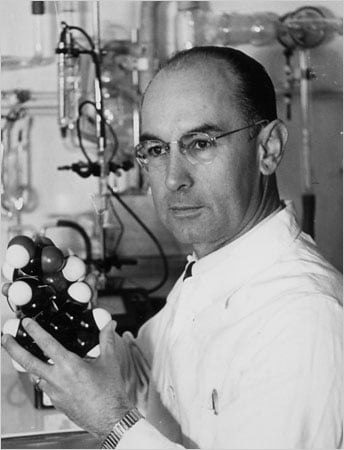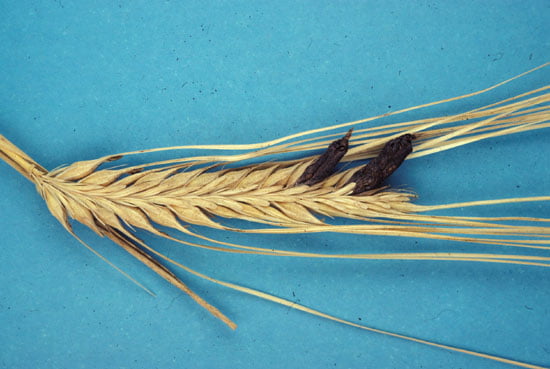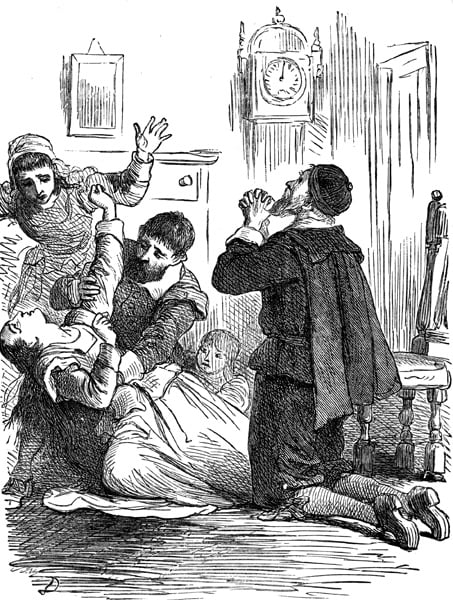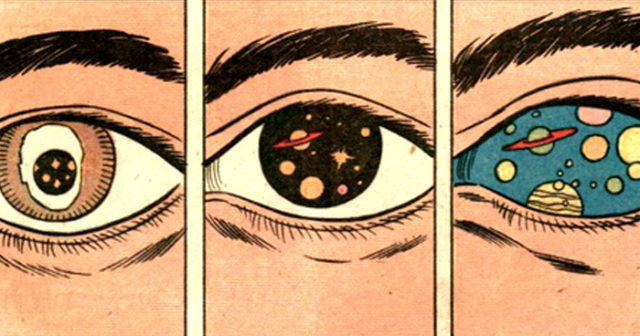Back in Time is ED’s newspaper-like column that reports an incident from the past as though it has happened just yesterday. It allows the reader to re-live it several years later, on the date it had occurred.
16th November, 1938: Swiss chemist Albert Hoffman has successfully synthesized an unusually interesting ergot alkaloid at the Sandoz laboratory that might prove to be a major breakthrough in medical sciences. The chemical compound is known as Lysergic Acid Diethylamine, LSD in short, is an ergotamine derivative. In search of a wonder drug for the respiratory and circulatory systems, Hoffman seems to have converted the dangers of the ergot into a safe drug!

Researchers are yet to discover the full potential of LSD through their laboratory tests before releasing it in the market, but insiders already claim that it might just be the next big thing.
Ergot, the root material, has a quirky history of its own, with the reputation of being a mass murderer. A fungus found in tainted rye, it has been historically responsible for hundreds or thousands of deaths across Europe over centuries. Documented evidence from several puzzling catastrophes have lead modern day researchers to believe that ergot poisoning might have been a principle factor in several of grain poisoning deaths at a greater scale, termed as St Anthony’s Fires.

But two strains of diseases have been reported from ergot poisoning, one being gangrenous ergotism and the other, convulsive ergotism. Of the two, convulsive ergotism has reported to have symptoms like hallucinations, body contortions, blisters, delusions, severe pain, excessive trembling or shaking. Mania and psychosis resulting from then unknown origins often came to be associated with superstitions of witchcraft.
Could consumption of LSD, being a derivative of this notorious fungi, cause such psychotic fits in people?
That could be potentially dangerous. But the Sandoz laboratory has proven that derivatives of ergot, which in fact has been in use traditionally in ancient science with a lot of caution, has useful muscle restrictive and blood coagulation properties too. Arthur Stoll’s research on ergot alkaloids had helped in separating the side effects causing elements in the compound from the valuable ones to synthesize a safer drug. Sandoz laboratories have been profiting immensely in the last 12 years since that breakthrough.
Arthur Hoffman, taking a step further, has tried to combine the separate sub-elements like lysergic acid from ergot to other organic molecules to test newer combinations. The current component was a result of his 25th trial to lysergic acid with diethylamine, a derivative of ammonia, which he termed LSD 25.
The Sandoz laboratories have congratulated Hoffman on his research and are enthusiastically looking forward to results from clinical trial results. Demystifying the vagaries of ergot-poisoning thus to attempt the synthesis of a wonder drug, they have made commendable progress in modern medical sciences. The public now has expectations higher than ever before.
—
The above news report is a fabrication of true facts, completely based on conjecture. Who knows how thrilled was the reading public in Switzerland to stumble upon this? What we do know is that the laboratory soon deemed LSD useless owing to negative clinical trials where the animals displayed hyperactivity, paranoia, and odd excitement.
Five years later, Hoffman finally solved the riddle when he experienced visions, anxiety and intense psychological disturbance of accidently consuming it. After deliberating taking an extra precautionary minor dosage of 250 milligrams on April 16th, 1943, Hoffman realized the psychological effects of this exceptional drug and its potential to alter psychiatric medicine in the near future.
Little did he know that his lil discovery was to bring about a cultural revolution in the 1960s and permanently alter the discourse of human history forever.
Read More:
http://edtimes.in/2016/09/back-in-time-f-r-i-e-n-d-s-is-aired-for-the-first-time-today/
http://edtimes.in/2016/08/back-in-time-to-the-shortest-war-in-history/
http://edtimes.in/2016/02/youtube/



































